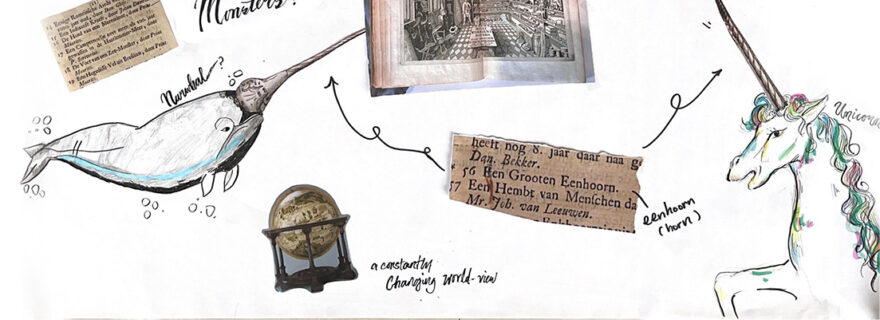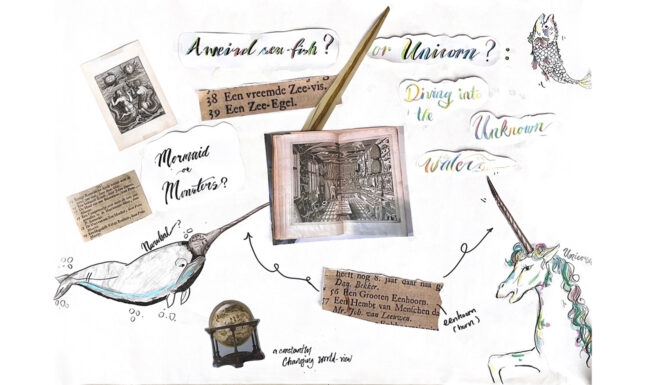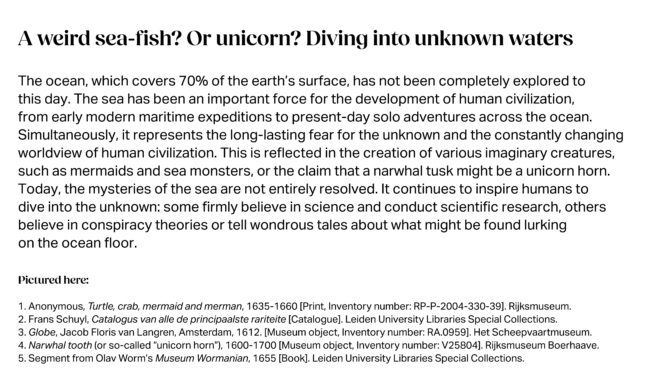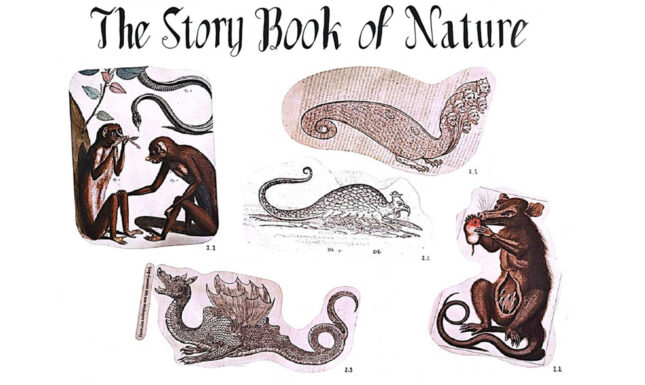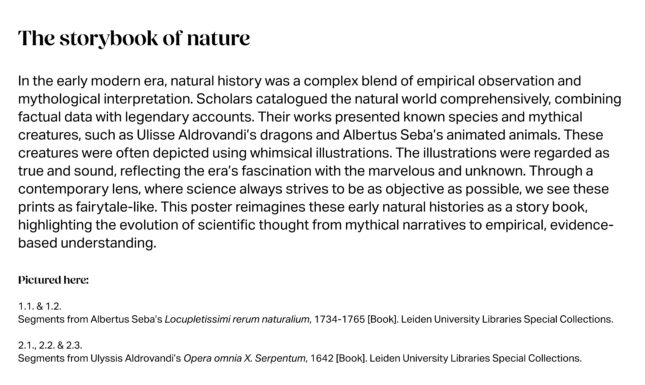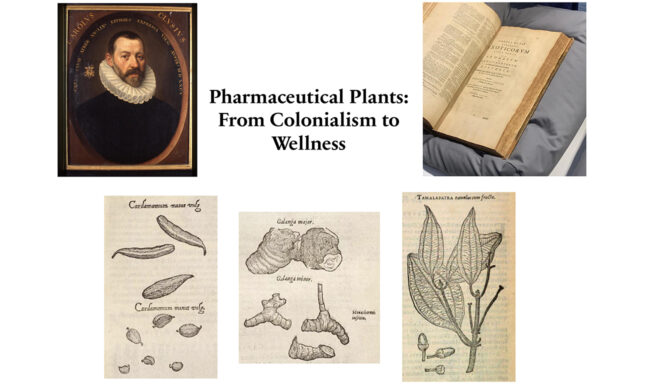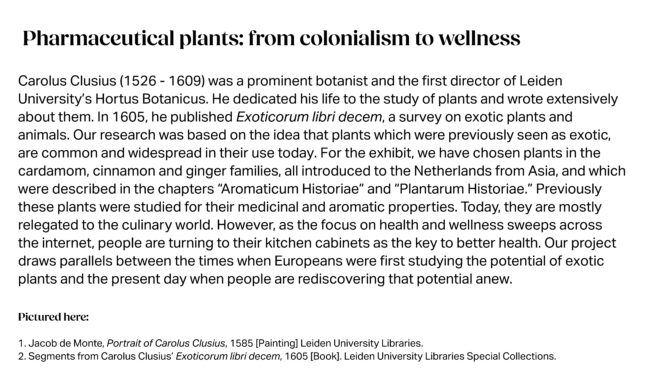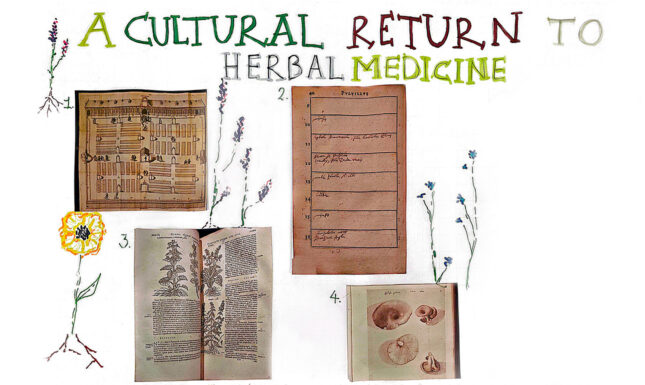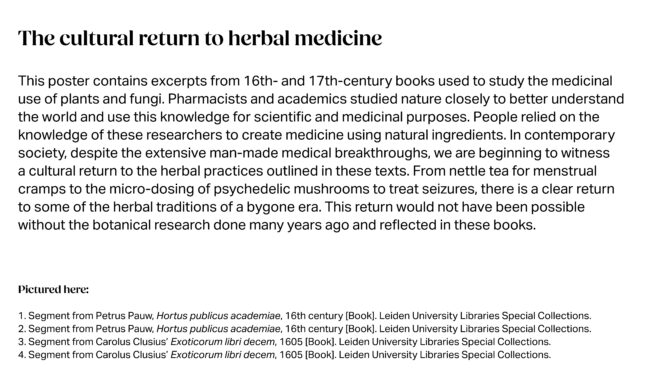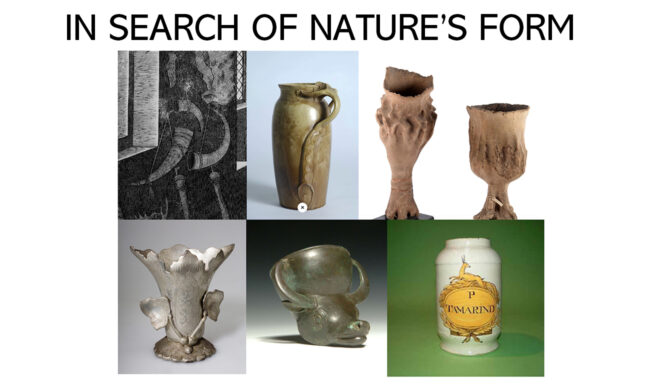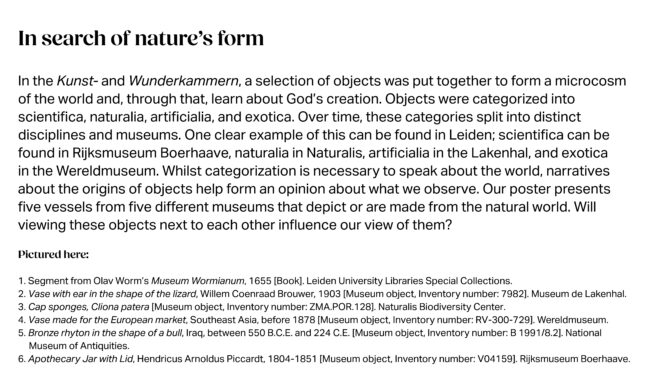Reflecting on knowledge through early modern encyclopaedic collections in Leiden
How can early modern encyclopaedic collections be reinterpreted today? Using old manuscripts, some of which date back to Leiden University’s very beginnings, students explore the relevance of these historical documents and the knowledge they hold. Their ideas are brought together in this exhibition.
The beautiful volumes kept in Leiden University’s Special Collections Library, including Olav Worm’s Museum Wormianum and Ferrante Imperato’s Historia Naturale, present encyclopaedic collections of fragments of the natural world. These internationally renowned documents on cabinets of curiosities and early modern collections are amongst the oldest of their kind. They were put together as a complete and exhaustive overview that would help make sense of the natural world. Through such collections and printed encyclopaedias, collectors constructed, categorised and distributed knowledge. The collections pictured in these volumes are the forerunners of the modern museum. Today, several of the objects can still be found in Leiden’s museums. Building on these objects and everything that has been acquired since, museums construct and present knowledge, which, in turn, can be interpreted differently over time.
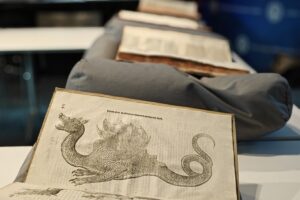

The importance of these manuscripts for scientific, natural and museum history is evident. But how can the artefacts from these collections be used to address a contemporary theme or question? What do these documents reveal about the ways in which knowledge was collected, interpreted and made visible? And how might this be reflected within museum collections today? In a hands-on Museum Lab Workshop, students were prompted to explore these questions after an introduction to a selection of unique printed works by encyclopaedic collections expert Dr. Marika Keblusek. In the creative process that followed, the students worked in groups to develop posters that connected the collection histories and artefacts documented within the studied printed works to a topical issue.
The images below show the results of this half-day workshop. The students created five collages and wrote the texts that accompany them. Each of the posters reflect their ideas about knowledge production and the role of science therein. Bringing together objects from different collections, the collages and accompanying texts ponder scientific knowledge and theories that were generally accepted as the truth in their time.
Figures 1-10 (use arrows to scroll).Colophon
Student contributors: [Poster 1] Sandy Cheung, Melissa Hofman, Wanting Yu, [Poster 2] Intan Junaedi, Alice Smits, Olivia Sonne Thaning, Jetske Voll, [Poster 3] Agniete Gelažunaitė, Helmi Kärki, Lara Škulić, Adelina Yaneva, [Poster 4] Ted van Buuren, Matilda Kay, Jet Lurvink, [Poster 5] Daria Agapitova, Beri Kalvo, Marie van Spaendonck
Workshop organisers and curators: Raphaël Gerssen and Dr. Susanne Boersma
Introduction to the materials: Dr. Marika Keblusek
Access to the materials: The wonderful staff from the Special Collections library
Museum Lab director: Dr. Laurie Kalb Cosmo


